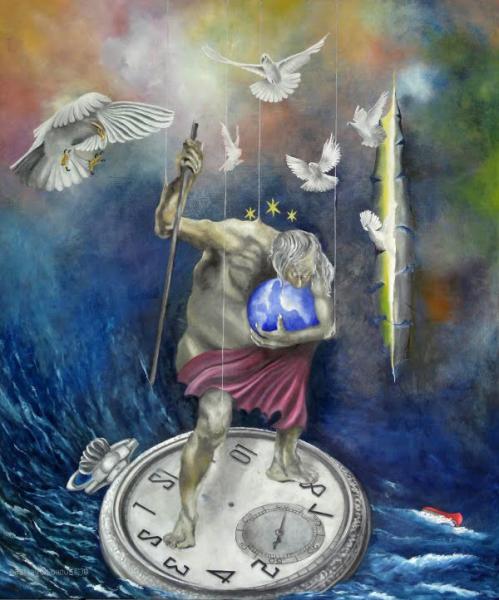previous
|
next
Germanic Languages and Literatures Graduate Student Conference
Embodying Vision/Envisioning Embodiment
FRIDAY, OCTOBER 18TH (Forum Hall):
8:00 - 9:00 am: Breakfast
9:00 - 11:00 am: Panel 1: Activating the Spectator
Looking in Painting: Spectators at the Trecento Crucifixion (Alexander Coyle, History of Art, Yale University)
The Spaces in Between: Cohabitation of the Propagandist and Propagandee (Kelly Wheeler, English, University of Michigan)
Latent Horrors: Bodies, Vision, and Vomit in Yorgos Lanthimos’s The Lobster (Martha Henzy, English, University of Michigan)
11:00 - 11:30 am: Coffee and Tea Break
11:30 am - 1:30 pm: Panel 2: Viewing Pain, Experiencing Pain
Picturing Racial Pain: Corporeality and Personhood in Abolitionist Photographs and Lynching Postcards (Markus Diepold, American and German, University of Graz)
Recognition and Witnessing: Enacting “Pain-Work” in John Berger and Jean Mohr’s A Fortunate Man (1967) (Bassam Sidiki, English, University of Michigan)
The Trouble with Needles: Boundaries, Privacy, and Persistent Presence (Steven Kurtz, Romance, University of Michigan)
1:30 - 3:00 pm: Lunch Break
3:00 - 5:00 pm: Panel 3: Constructing Seeing and Subjectivity
“Oswalt Kolle sei Dank!” Visualizing Sexual Knowledge in West German Popular Media during the 1960s (Natalie Cincotta, History, The University of Texas at Austin)
To Be Summoned: Constructions and Destructions of the Subject in Herta Müller’s Heute wär ich mir lieber nicht begegnet (Erin Johnson-Weiss, German, University of Michigan)
Performing Fandom: Visualizing Embodied Emotions in German Soccer Fan Culture (Pavel Brunssen, German, University of Michigan)
8:00 - 9:00 am: Breakfast
9:00 - 11:00 am: Panel 1: Activating the Spectator
Looking in Painting: Spectators at the Trecento Crucifixion (Alexander Coyle, History of Art, Yale University)
The Spaces in Between: Cohabitation of the Propagandist and Propagandee (Kelly Wheeler, English, University of Michigan)
Latent Horrors: Bodies, Vision, and Vomit in Yorgos Lanthimos’s The Lobster (Martha Henzy, English, University of Michigan)
11:00 - 11:30 am: Coffee and Tea Break
11:30 am - 1:30 pm: Panel 2: Viewing Pain, Experiencing Pain
Picturing Racial Pain: Corporeality and Personhood in Abolitionist Photographs and Lynching Postcards (Markus Diepold, American and German, University of Graz)
Recognition and Witnessing: Enacting “Pain-Work” in John Berger and Jean Mohr’s A Fortunate Man (1967) (Bassam Sidiki, English, University of Michigan)
The Trouble with Needles: Boundaries, Privacy, and Persistent Presence (Steven Kurtz, Romance, University of Michigan)
1:30 - 3:00 pm: Lunch Break
3:00 - 5:00 pm: Panel 3: Constructing Seeing and Subjectivity
“Oswalt Kolle sei Dank!” Visualizing Sexual Knowledge in West German Popular Media during the 1960s (Natalie Cincotta, History, The University of Texas at Austin)
To Be Summoned: Constructions and Destructions of the Subject in Herta Müller’s Heute wär ich mir lieber nicht begegnet (Erin Johnson-Weiss, German, University of Michigan)
Performing Fandom: Visualizing Embodied Emotions in German Soccer Fan Culture (Pavel Brunssen, German, University of Michigan)
| Building: | Palmer Commons |
|---|---|
| Event Type: | Conference / Symposium |
| Tags: | Rackham |
| Source: | Happening @ Michigan from Germanic Languages & Literatures, History of Art, Comparative Literature, Rackham Graduate School, Center for European Studies, Eisenberg Institute for Historical Studies, Weiser Center for Europe and Eurasia, Department of American Culture, Department of English Language and Literature |


